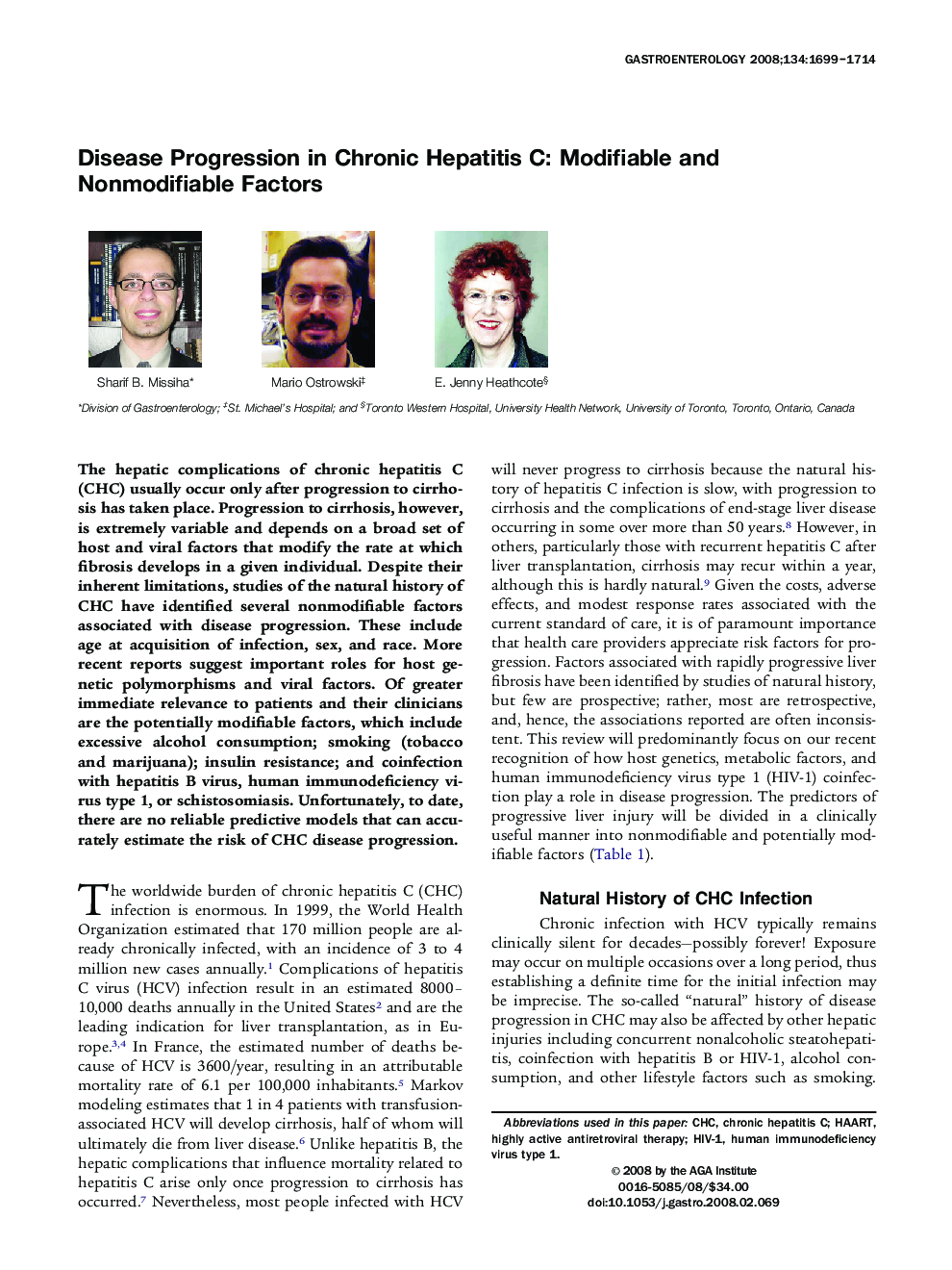| Article ID | Journal | Published Year | Pages | File Type |
|---|---|---|---|---|
| 3298673 | Gastroenterology | 2008 | 16 Pages |
The hepatic complications of chronic hepatitis C (CHC) usually occur only after progression to cirrhosis has taken place. Progression to cirrhosis, however, is extremely variable and depends on a broad set of host and viral factors that modify the rate at which fibrosis develops in a given individual. Despite their inherent limitations, studies of the natural history of CHC have identified several nonmodifiable factors associated with disease progression. These include age at acquisition of infection, sex, and race. More recent reports suggest important roles for host genetic polymorphisms and viral factors. Of greater immediate relevance to patients and their clinicians are the potentially modifiable factors, which include excessive alcohol consumption; smoking (tobacco and marijuana); insulin resistance; and coinfection with hepatitis B virus, human immunodeficiency virus type 1, or schistosomiasis. Unfortunately, to date, there are no reliable predictive models that can accurately estimate the risk of CHC disease progression.
